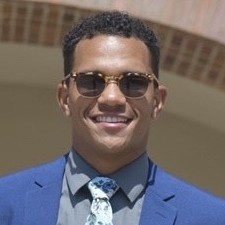YOU BELONG HERE
There's a place for you at Kentucky State University.
At Kentucky State, a close, family-oriented community welcomes entering freshmen and transfer students alike. Here, we understand every student has a unique set of strengths — some known and others you have yet to discover. As the second oldest HBCU in the Commonwealth, our rich history, highly diverse campus community and strong emphasis on academics and community service will prepare you for success.
Learn More#MASKUPBREDS
Together Breds we can help protect others.
Wear your face mask or face covering on campus when in the presence of others and in public settings where other social distancing measures are difficult to maintain (e.g., outside of your office, residence halls, classrooms and common areas).
Learn MoreCollege of
Agriculture, Health, and Natural Resources
The legacy lives on.
Spark the next great advancement in sustainable farming. Save the environment. Open a modern Ag business or become a world-changer in the research arena. Founded as a land-grant institution, Kentucky State boasts a rich history in agriculture and has evolved into a leader in fields like aquaculture and organic research. You can join us on a journey of discovery like no other. Satisfy your intellectual curiosity. Master the principles of Science and apply your knowledge in ways that improve the natural world and the human condition. Learn more about our diverse academic offerings and become a part of Kentucky State's proud legacy.
Learn MoreCollege of Business, Engineering, and Technology
Fill your mind, enrich your life.
Take the creative spirit of the writer. The musician’s song. The relentless drive of the entrepreneur. The philosopher’s wisdom and the sociologist’s unique world view. Combine them all and you have The College of Humanities, Business, and Society, a vibrant, multi-faceted department where a rich, rigorous curriculum prepares you to become a lifelong leader in areas that improve and enrich our culture, our communities and our lives.
Learn MoreWHITNEY YOUNG HONORS COLLEGIUM
A higher level in higher education.
Dream bigger. Set your sights higher. Aspire to accomplish more. The Whitney Young Honors Collegium exists to help students achieve the highest levels of academic success. Our esteemed faculty will motivate you, embrace your goals, and guide you toward a lifetime of achievement. Kentucky State’s specialized curriculum will help you find your courage and confidence to celebrate the challenges and opportunities that await you, all with one goal in mind: to help you reach your full potential as a student and in life.
Learn More
Kentucky State University Celebrates Grand Opening of New Hay Testing Lab in Barren County
Kentucky State University Celebrates Grand Opening of New Hay Testing Lab in Barren County

KSU Team Begins New Research on Reclaimed Coal Mine Site in Eastern Kentucky
KSU Team Begins New Research on Reclaimed Coal Mine Site in Eastern Kentucky
What Makes
Kentucky State Special?
OUR STUDENTS
“Of all people on campus, I am the one that the administration and the President pointed out for being the most effective and engaged student to the community,” Galloway said.
OUR EMPLOYEES
Dr. Alexander Lai, associate professor of biology, co-authored the paper, “COVID-19: Epidemiology, Evolution, and Cross-Disciplinary Perspectives,” with collaborators in China and Germany. The paper is published in Trends in Molecular Medicine.
OUR ALUMNI
Waller said, “Starting the program while deployed helped me focus on something else rather than my deployment. It was a type of mental escape for me.”









